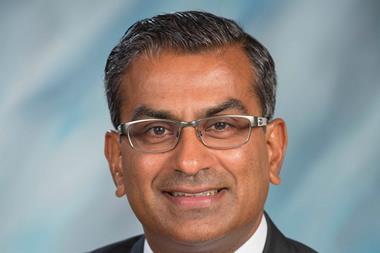IATA has called on governments and the air cargo industry to focus on three priorities to accommodate the expanding demand for air cargo and ensure the economic and social benefits of aviation can be maximized.
The three priorities are: Accelerating the speed of process modernization, implementing and enforcing global standards, and keeping borders open to trade.
The call came during the opening addressof the World Cargo Symposium in Singapore by Alexandre de Juniac, IATA’s director general and chief executive
IATA called for the modernization of industry processes, saying that it will be critical to meet efficiently the doubling of demand expected over the next two decades.
It is already being called for by customers of the industry’s most promising growth markets: e-commerce and the transport of time - and temperature-sensitive goods such as pharmaceuticals and perishables.
IATA also called for modernization of air cargo facilities.
Said de Juniac: “The e-commerce world is looking for fully automated high-rack warehouses, with autonomous green vehicles navigating through the facility, and employees equipped with artificial intelligence and augmented reality tools.The average cargo warehouse today is an impressive sight. But there is a huge gap to fill.”
He added: “The problem is not technology. The problem is the speed to market. It’s exceptionally tough to drive change in a global industry with a huge number of stakeholders where safety is top priority.
“But it is not mission impossible. I challenge stakeholders to find ways to drive critical change at the speed our customers expect.”
IATA also urged governments to ensure that global standards are consistently implemented and enforced when necessary.
De Juniac highlighted two examples, the first being global standards for the safe transport of lithium batteries: “Global standards are being ignored by rogue shippers. And governments are not enforcing the rules.
“In some cases, we see more effort going into stopping counterfeit production of Louis Vuitton bags than lithium batteries. Both need attention. But lithium batteries are a safety risk. And we need governments to do better at enforcement.”
He also called for the Implementation of global agreements to make trade “simpler, cheaper and faster”.
IATA called on governments to implement three important agreements: (1) The World Trade Organization’s Trade Facilitation Agreement, (2) the Montreal Convention 1999 (MC99); and (3) revisions to the Kyoto Convention of the World Customs Organization.
IATA urged governments to keep borders open to trade.
“Protectionism, trade friction, BREXIT and anti-globalization rhetoric are part of a genre of developments that pose real risk to our business and broadly across the economies of the world.
“We need to be a strong voice reminding governments that the work of aviation—including air cargo—is critically important. Trade generates prosperity. And there are no long-term winners from trade wars or protectionist measures,” said de Juniac.









